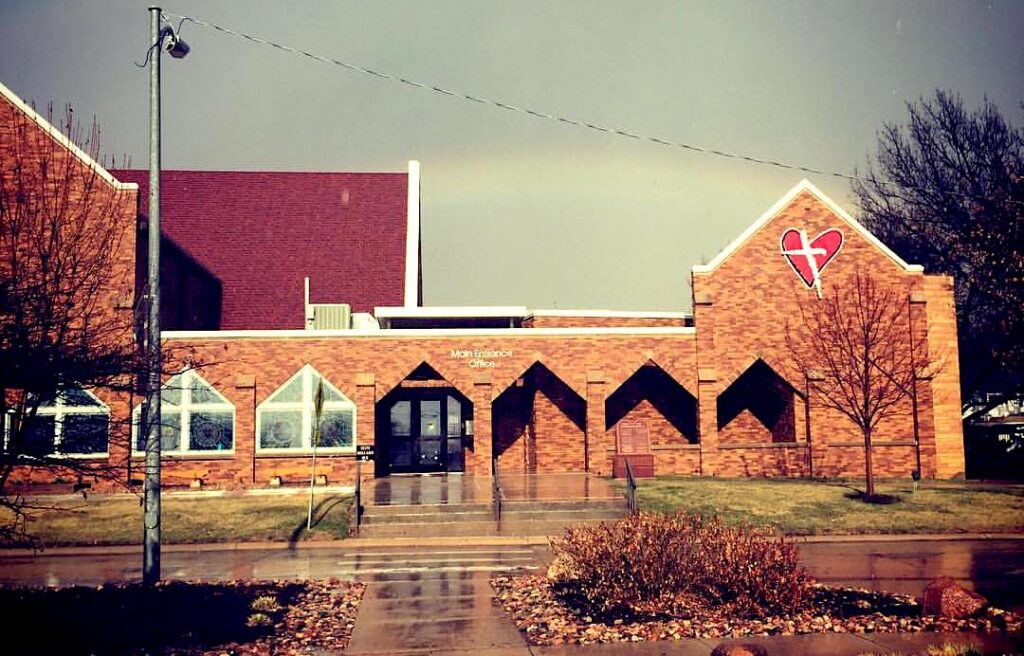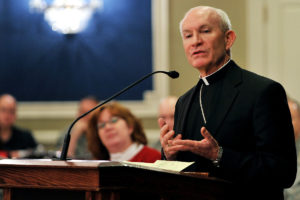Now is the time to build in education
(The Gospel Coalition) – For our cities and communities to flourish, Christians need to be builders. But I never expected to build a school. Here’s the story of how it happened.
When our…

(The Gospel Coalition) – For our cities and communities to flourish, Christians need to be builders. But I never expected to build a school. Here’s the story of how it happened.
When our oldest son turned 5, my wife and I toured the neighborhood school. We weren’t thrilled about the educational objectives they outlined. So we decided to homeschool for his first year.
As we explored our options, we were introduced to the classical model of education through authors like Susan Wise Bauer and Dorothy Sayers. We were immediately compelled. We loved watching our son discover new things; classical education was built around the joy of learning. We wanted our son to be intellectually challenged; classical education was focused on excellence. We wanted our son to grow into a virtuous, wise adult; classical education had character formation as a central aim. And we wanted a time-tested method that worked; the classical “trivium,” which parallels the natural development of a child’s mind and curiosity, had been producing wise, well-educated students for centuries.
Sharing Classical Education
We found a small cohort of classical homeschoolers in our city, and we were off and running. That led to a decade of teaching our own children classically and helping others do the same. We had no choice: in our city, if we wanted a classical education, homeschooling was our only option.
We loved the teaching and learning, but we found the administrative and organizational side challenging. And we weren’t the only ones. Though many families in our city were intrigued by the classical model, they weren’t ready to sign up for full-time homeschooling.
Then, in the spring of 2015, I went to visit a friend in Austin, Texas. At his son’s classical school, students spent three days each week learning on campus and worked independently at home for the other two. This hybrid approach kept parents deeply involved in the educational process, removed the administrative burden of homeschooling, and offered an affordable tuition cost. I was intrigued. It seemed like a model that could work where we live. I came home and talked to my wife about the possibility of helping to start a school. To my surprise, she said, “We should give it a try.”
So I gathered two friends—acquaintances, really, at that point—for a brainstorming session. Phil is a local attorney and entrepreneur who starts companies in his spare time. Anna is an educational pioneer with deep ties in the homeschool and philanthropic communities. I prayed that if this idea was from the Lord, he’d confirm it through their enthusiasm.
Both of them immediately jumped in with both feet. Together, we spent six weeks researching and roughing out a vision for a classical, Christian, collaborative school. We read everything we could find on the model. We took a scouting trip to Texas. Through social media and word of mouth, we made connections with others who coached us along the way.
Before long, we had a pretty solid launch plan. But we didn’t yet have any actual students.
By our calculations, we needed 30 students for the school to be financially and logistically viable. So we prayed and asked God to provide. Then, in October 2015, we hosted our first informational meeting.
“If you’re interested enough to be a stakeholder,” I told a room of about 40 parents, “we’d like you to invest $100 and join the waiting list.” By the end of the evening, six families had made a deposit. Over the next two months, dozens more joined them. And by the time Trinity Classical Academy (TCA) officially began classes in the fall of 2016, 63 students had enrolled.
Thriving
Where do you host a brand-new school? With four or five local churches willing to rent a space to us, we were feeling confident about our options. Then the city building inspector informed us none of those facilities would meet school fire code requirements. In one afternoon we went from five possibilities to zero. We got on our knees and asked God to intervene. A week later, through a providential conversation at my son’s baseball game, I heard of a Lutheran church with a brand-new, state-of-the-art children’s wing. I reached out. They agreed to partner with us.
God didn’t only provide facilities; he provided leaders. Our first hire was Sara, a veteran high school English teacher who’d begun reading about classical education in her spare time. In prayer, she felt God calling her to take a vocational risk. So she applied to be TCA’s inaugural head of school. In the interview process, she rose to the top. She accepted a job in a school that existed only on paper, helping to bring it into reality. During her final semester teaching high school English, she invested her nights and weekends to design curriculum, hire teachers, and build an academic plan.
Since the school launched, it’s been a wild ride. TCA has averaged a 37 percent annual growth rate. We’ve struggled to hire enough new teachers each year to keep up with demand. We’ve outgrown our original rented space in the Lutheran church and have sustained two fundraising campaigns to solve our facility problems.
Last year, by God’s kind providence, we were able to purchase a decommissioned public school adjoined by 10 acres of green space. This fall, we’ll welcome 440 students in grades K–11. In the spring of 2025, we’ll celebrate our first graduating class—including my own daughter, who began her journey at TCA as a fourth grader.
Celebrating God’s Faithfulness
Not only has God granted us steady growth, but cultural factors have providentially worked in our favor. When we first launched TCA, the idea of “collaborative” education was foreign to many people. Then COVID hit. Suddenly, every parent in America was a coteacher—and now our model makes intuitive sense. The rise of liberal ideology in public schools has also awakened new interest. The erosion of parental rights has spurred many families to seek a model of education that prioritizes parental involvement.
And school choice initiatives across the country have highlighted the need for educational opportunities. Just last month, our own state legislature passed a tax-credit bill to incentivize scholarships to private and parochial schools. TCA initially seemed like an unusual educational option; it’s quickly become a flagship institution in our city and the school of choice for many Christian families.
The presence of TCA has strengthened classical Christian education across our region. Classical homeschooling has grown. New classical co-ops and alternative schools are being started each year. This was our prayer from the beginning. Rather than competing with other Christian institutions for a slice of the pie, we wanted to grow the pie for everyone. God has been good to fulfill that desire.
But the most satisfying aspect of the journey has been watching students thrive intellectually, spiritually, and socially. Parents, seeing the virtue that classical education produces in their kids, have become our greatest spokespeople. Teachers who were once advocates of public education now stump for the classical paradigm. A university professor who also teaches logic at the school claims TCA students write better than his college students. And grandparents, witnessing the culture of honor and Christian joy at TCA, are bullish on what their grandkids are learning.
No school is perfect for every student; we’ve experienced mild attrition here and there. But as we’ve taught our students to say, “This is hard; this is fun.” And that’s real. It’s both.
I hope this story spurs you to attempt something similar in your city. We need to launch hundreds—no, thousands—of classical Christian schools. We need Christians who are founders, Christians who are funders, Christians who will serve as teachers and aides and administrators and board members. The renewal of education—and the renewal of culture—requires a return to classical wisdom. It’s time to build.
Maybe you don’t envision yourself as a builder. But you never know how God might use you—even to educate a generation of children—if you follow him.
This article originally appeared on The Gospel Coalition website and is republished with permission.



